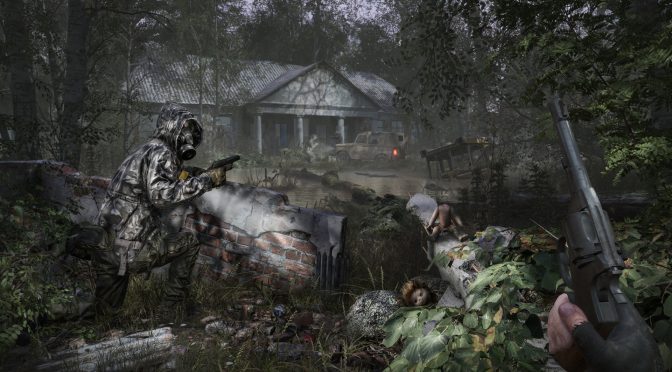The Farm 51 has launched a Kickstarter campaign for its upcoming STALKER-inspired science-fiction survival horror game, Chernobylite. In addition, the team has also released the game’s story trailer that you can find below.
Chernobylite is described as a science-fiction, survival horror single-player experience, mixing free exploration of its disturbing world with challenging combat, unique crafting, and non-linear storytelling. As a player, you’ll have to survive and reveal the twisted secrets of Chernobyl in the 3D-scanned recreation of the real Exclusion Zone.
The Farm 51 aims to raise $100K in the next 29 days (it has already raised $21K) and it will give a playable demo to all of its backers, giving them the possibility of experiencing Chernobylite world in 1-2 hours of pre-alpha gameplay.
The game will be powered by Unreal Engine 4, will be using Photogrammetry, and here are its key features.
- Collaborate or compete with other stalkers you meet in the Zone, but whatever you do, never fully trust them. Remember – everybody has a hidden agenda. Always.
- Face and survive natural and supernatural threats.
- Immerse yourself in the thrilling non-linear science-fiction horror story.
- Make good use of your character’s knowledge to craft your equipment, manage your supplies and arrange your stalker’s base.
- Investigate and collect data with sophisticated environment and substance analyzing tools.
- Explore the beautiful and horrifyingly accurate 3D-scanned recreation of the Chernobyl Exclusion Zone.
Enjoy!

John is the founder and Editor in Chief at DSOGaming. He is a PC gaming fan and highly supports the modding and indie communities. Before creating DSOGaming, John worked on numerous gaming websites. While he is a die-hard PC gamer, his gaming roots can be found on consoles. John loved – and still does – the 16-bit consoles, and considers SNES to be one of the best consoles. Still, the PC platform won him over consoles. That was mainly due to 3DFX and its iconic dedicated 3D accelerator graphics card, Voodoo 2. John has also written a higher degree thesis on the “The Evolution of PC graphics cards.”
Contact: Email

